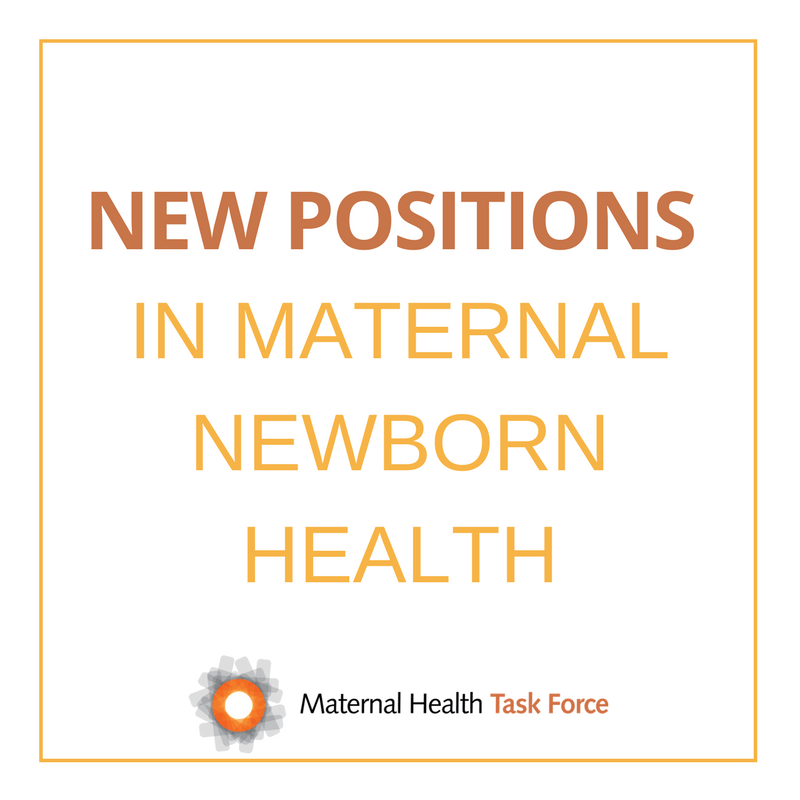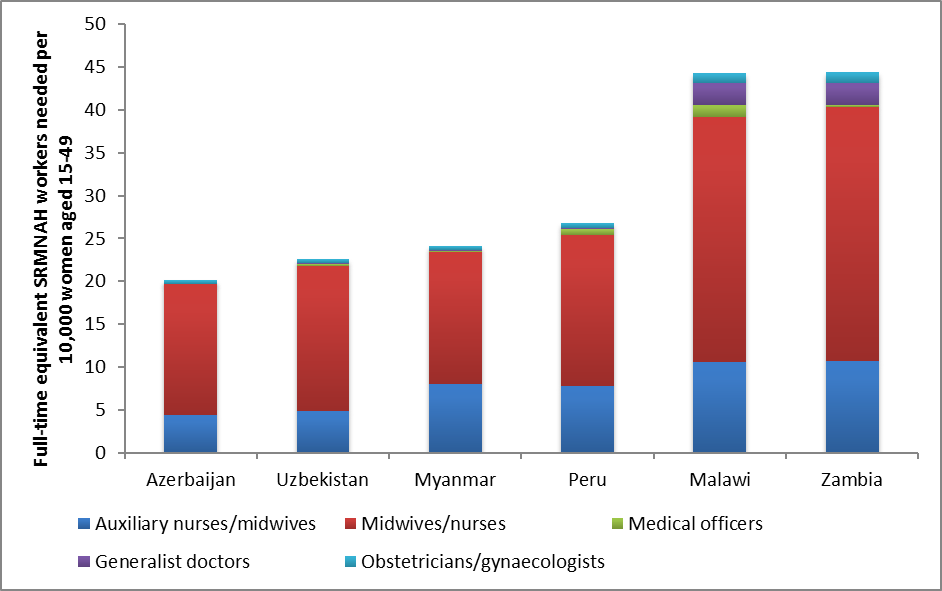Maternal Health Task Force
The Maternal Health Task Force strives to create a strong, well-informed and collaborative community of individuals focused on ending preventable maternal mortality and morbidity worldwide.
677 Huntington Avenue
Boston, MA 02115
Blog
-
Obstructed Labor Does Not End at Delivery: Strengthening Postpartum Care Following Prolonged/Obstructed Labor
In June 2017, at the 31st International Confederation of Midwives Triennial Congress in Toronto, Canada, the United States Agency for International Development–supported Fistula Care Plus (FC+) project at EngenderHealth convened a panel discussion co-sponsored by Bard Medical on postpartum care following prolonged/obstructed labor (P/OL)…read more
-
The Role of ASHAs in Improving Maternal and Newborn Health: A Closer Look at India’s Community Health Worker Program
India’s Accredited Social Health Activist (ASHA) program was established by the National Rural Health Mission in 2010 with an aim to improve health outcomes—particularly among women and children—and to reduce disparities by working in their own communities as health activists, educators and providers of basic essential services. While evidence has found ASHAs to have several positive impacts, these community health workers face a number of challenges…read more
-
New Jobs and Internships in Maternal Newborn Health
Interested in a position in reproductive, maternal, newborn, child or adolescent health? Every month, the Maternal Health Task Force rounds up job and internship postings from around the globe. In this month’s roundup, we are featuring positions with Johns Hopkins Bloomberg School of Public Health, Performance Monitoring and Accountability 2020, CARE and other organizations…read more

-
New Every Woman Every Child Global Strategy Progress Report
“Progress in Partnership”—the first progress report on Every Woman Every Child’s Global Strategy for Women’s, Children’s and Adolescents’ Health – provides a comprehensive snapshot of women’s, children’s and adolescents’ health and wellbeing across the Sustainable Development Goals, highlighting linkages across sectors and the power of partnerships to deliver on a sustainable, inclusive and integrated development agenda…read more
-
From The Archives | The Role of Breastfeeding in Achieving the SDGs
During this year’s World Breastfeeding Week, we reflect on the crucial role of breastfeeding in pursuing the Sustainable Development Goals (SDGs). Although the benefits of breastfeeding are well documented, breastfeeding rates remain low in many settings, and large disparities persist both within and among countries…read more
-
Midwifery Is Part of the Culture
Guatemala has a shortage of skilled birth attendants, and health workers do not always provide culturally sensitive, respectful maternity care. As a result, traditional birth attendants, known as comadronas, often assume responsibility for women’s care during pregnancy and childbirth…read more
-
A More Accurate Method for Estimating Country-Level Health Workforce Needs?
An effective health workforce requires not only a sufficient number of workers, but also an appropriate mix of health care providers or cadres. A group of researchers developed a new model for estimating sexual, reproductive, maternal, newborn and adolescent health workforce needs that accounts for demographic and epidemiological differences among countries…read more

-
New Guidelines for Preventing and Treating Malaria in Pregnancy
Addressing the issue of malaria in pregnancy (MiP) is a key component of providing high quality antenatal care (ANC), particularly in endemic areas. A group of experts recently published a brief with guidelines for preventing and treating MiP in the context of the updated ANC recommendations from the World Health Organization…read more
-
Examining the “Urban Advantage” in Lagos, Nigeria: Geographic Disparities in Maternal Mortality
Erin Anastasi and colleagues recently published a paper titled, “Unmasking inequalities: Sub-national maternal and child mortality data from two urban slums in Lagos, Nigeria tells the story,” exploring the so-called “urban advantage” in maternal health. The Maternal Health Task Force’s Sarah Hodin interviewed Dr. Anastasi about her team’s findings and implications…read more
-
Updated Guidelines on Managing Complications in Pregnancy and Childbirth
In June 2017, the World Health Organization, UNICEF and the United Nations Population Fund released the second edition of “Managing Complications in Pregnancy and Childbirth: A Guide for Midwives and Doctors.” The nearly 500-page document updated the clinical guidelines from the first edition published in 2000…read more